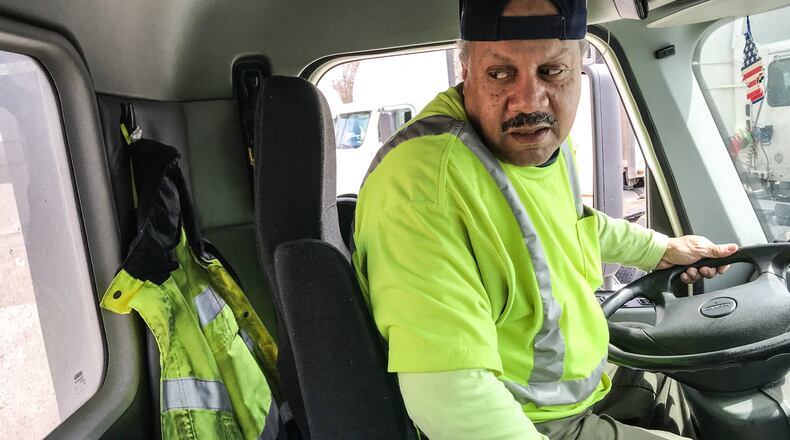Regulations that govern how much time a trucker can work were suspended at the federal level for the first time last week for truckers carrying “essential” items like medical supplies and some consumer goods.
Coronavirus: Complete Coverage
“We saw this huge spike in demand because people, for some reason, latched on to certain things like toilet paper,” Balzer said. “It became this mass hysteria and then those things got lost. We didn’t have, as an industry, an opportunity to catch back up.”
Ohio has also taken steps to reduce regulations and expedite shipping. The state issued an order that allows trucks to carry an additional 10,000 pounds of freight over the normal 80,000 pounds without having to wait on a permit.
“That process took time and we don’t want logistics companies to have to wait before getting much-needed supplies to stores,” Ohio Department of Transportation Secretary Matthew Bruning said in an email.
He said front-end permits are still required for loads in excess of 90,000 pounds.
While stay-at-home orders have reduced traffic and made truckers’ jobs a little bit easier, Balzer said coronavirus-related closures have created a host of problems and inconveniences for haulers.
MORE: What coronavirus means for local seniors and services
Kevin Burch, the former president of Dayton-based Jet Express Inc., described truckdrivers as “first responders” in times of natural disasters, and added that a variety of factors have made responding to the coronavirus a challenge. Among them is a national shortage of truck drivers.
While demand for transportation and hauling has been going up, a national shortage of truck drivers has been developing for years.
“We actually need 1 million drivers over the next 10 years,” said Burch, the former chairman of the American Trucking Associations. “That’s a staggering amount. We’ve been saying for the last few years that we’re an aging workforce.”
Some rest stops have closed, and some fast food restaurants have banned walk-up orders.
“These professional men or women who drive trucks are really saving our tail and putting up with a lot of inconvenience, because they’re basically having to do everything on that cab of the truck,” Balzer said.
Bruning said Ohio has kept rest stops open – and sanitized – in part to aid truck drivers.
MORE: House passes $2.2T rescue package, rushes it to Trump
“Truckers play an important role all the time, but that’s certainly amplified at this time,” Bruning said. “From food to household products and medical products – all of it comes by truck. That’s one reason we’ve worked to keep our rest areas in Ohio open with more frequent cleaning.”
Demand is usually wellcontrolled and easily measured at stores throughout the country, he said, but the panic buying and hoarding of supplies has meant extra work for truck drivers. He said some have to wait up to three hours in a line to load up shipments of paper towels.
Balzer emphasized that supplychains in the United States are “solid” and that people don’t need to buy carloads of toilet paper. He added that the nationwide fears are somewhat unprecedented.
“This is something we’ve never seen before,” he said. “And (truck drivers) are doing everything they can to resupply everything this country needs.”
He said truck drivers care about safety, pandemic or not. Drivers know their own limitations and make sure they’re fit to drive regardless of regulations.
“Their number one concern, no matter in a pandemic or on just a normal day, is safety,” Balzer said. “They take responsibility for everything that that vehicle does, and they take that responsibility extremely seriously.”
When grocery store shelves were cleared last week, it didn’t take long for new stockpiles of toilet paper and other essential goods to return to shelves. To the average consumer, it might’ve seemed simple, but hours of hauling and driving were behind the replenished supplies.
“Here in Ohio, we had bananas back on the store shelves in a day,” Balzer said.
About the Author
